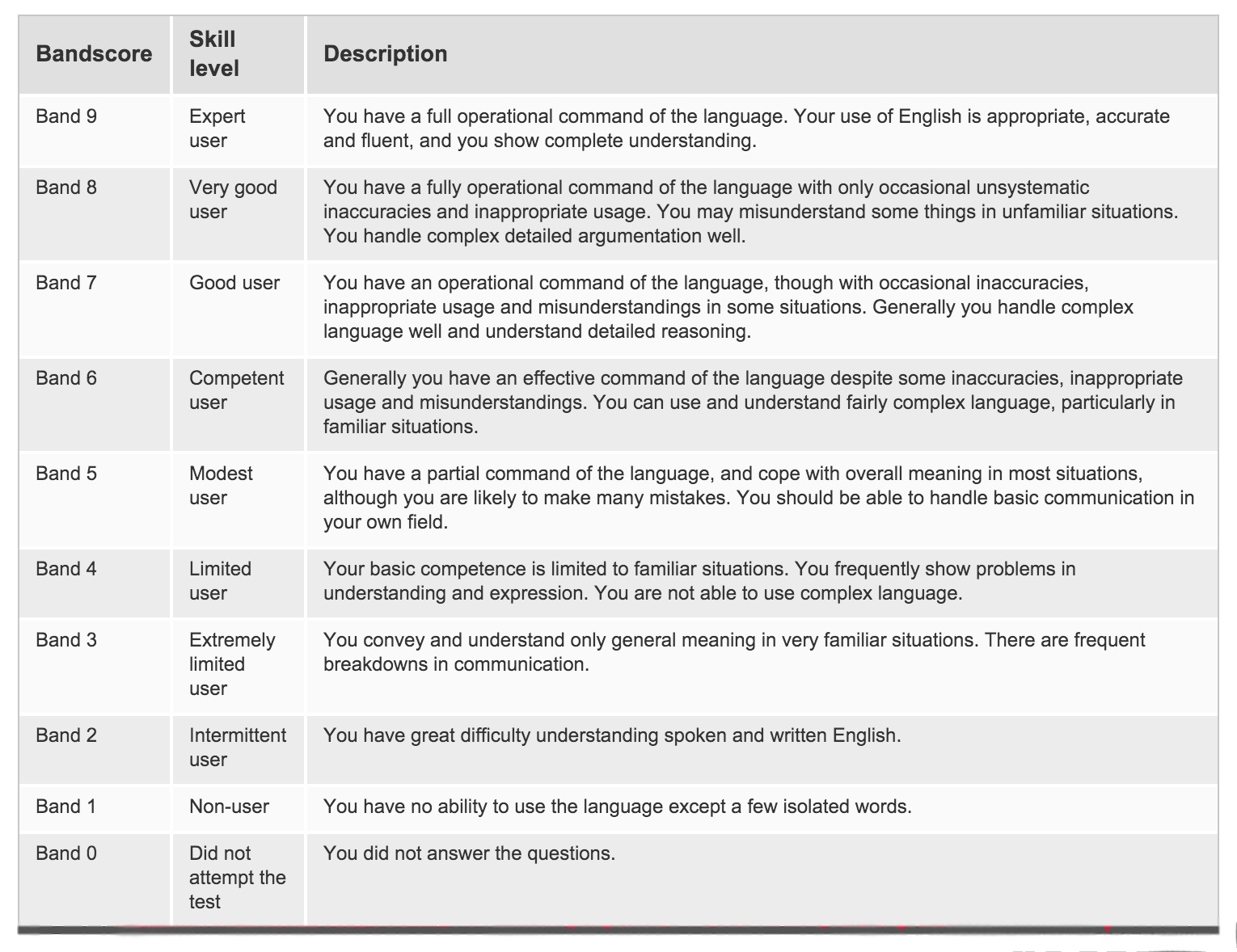What is IELTS?
The International English Language Test (IELTS) is designed to help you work, study or migrate to a country where English is the native language. This includes countries such as Australia, Canada, New Zealand, the UK and USA.
Your ability to listen, read, write and speak in English will be assessed during the test. IELTS is graded on a scale of 1-9.
IELTS is jointly owned by the British Council, IDP: IELTS Australia and Cambridge Assessment English.
Why take IELTS?
If you are looking to work, live or study in an English-speaking country, then you must be able to demonstrate a high level of English language ability.
English is the third most spoken language in the world, with 379 million speakers worldwide.
Being able to communicate in the native language of the country you wish to work or study in, has a wide range of benefits. It is also essential for job opportunities as well as integration into the community.
IELTS is the most popular test for those looking to migrate to Australia, Canada, New Zealand and the UK. It is globally recognised by more than 10,000 employers, universities, schools and immigration bodies including 3,400 institutions in the USA.
IELTS Score Scale

What IELTS score do I need?
The higher you can score in your IELTS, reflects a better understanding and ability to communicate in English. Each immigration body, university, workplace or institution will have specific IELTS score requirements. The score you need will depend on what you are looking to do in the country, i.e work or study.
How IELTS is developed
IELTS is developed to provide a fair and accurate assessment of English language proficiency.
Test questions are developed by language specialists from Australia, Canada, New Zealand, the UK and the USA. The test covers four sections: Listening, Reading, Writing and Speaking.
IELTS test content reflects everyday situations. It is unbiased and fair to all test takers from all backgrounds.
IELTS Test Types
IELTS has two types: IELTS Academic and IELTS General Training. Both tests assess your English language skills in listening, reading, writing and speaking.
Read below to find out more information on each test.
IELTS Academic
The IELTS Academic test is suitable for those wanting to study in an English-speaking environment or university (higher education). You can also take IELTS Academic for professional registration purposes.
The test measures if you are ready to begin studying in English. It features vocabulary that is familiar within an academic setting

IELTS General Training
The IELTS General Training test is suitable for those applying to study below degree level. This includes an English-speaking school or college. It can also be taken for work experience or other employment training.
IELTS General Training is also required for migration to Australia, Canada, New Zealand and the UK. The test features everyday English language skills that you will need in social and workplace environments.

Which IELTS test type is right for me?
If you want to move to an English-speaking country to study, then you should take the IELTS Academic test.
For work or immigration, the IELTS General Training test is recommended.
Ways to take IELTS
IELTS on Paper
This test requires test takers to sit at a desk with the question papers and answer sheets for the Reading, Listening and Writing tests in an official IELTS test centre. Test takers will write their answers in either pen or HB-pencils. The Speaking test is carried out face-to-face with a trained IELTS examiner.

IELTS on Computer
This test requires test takers to sit the Reading, Listening and Writing tests in front of a computer with the questions presented on the screen in an official IELTS test centre. The test takers then submit their answers through the use of a keyboard and a mouse. The Speaking test is not on computer and is carried out face-to-face with a trained IELTS examiner.



